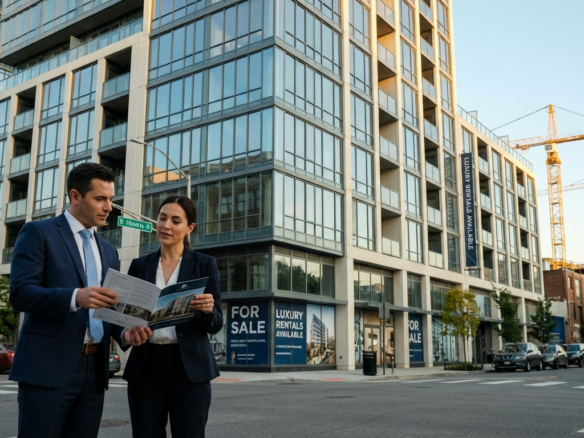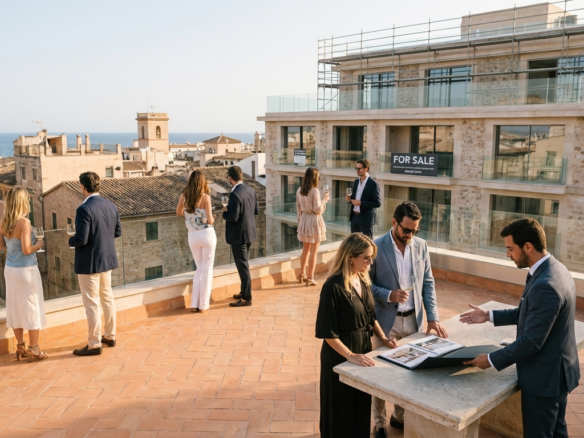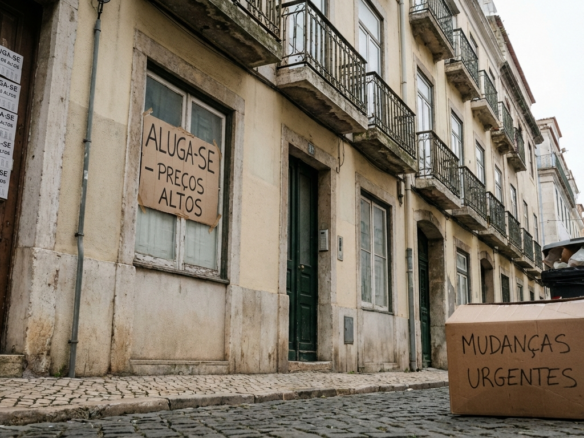Greece’s construction landscape has been rocked by a staggering revelation that challenges everything we thought we knew about property compliance in the Mediterranean nation. A comprehensive nationwide survey has uncovered that an overwhelming 97 percent of Greek buildings contain some form of permit violation, painting a picture of systematic non-compliance that spans decades. This isn’t just a minor administrative hiccup affecting a few properties here and there. We’re talking about nearly every single building across the country, from the bustling streets of Athens to the quietest island villages, carrying some degree of unauthorized construction work.
Get 50% OFF!
Subscribe to our newsletter and enjoy a 50% discount on all listing packages, no strings attached!

The implications of these findings are profound, affecting millions of property owners who may have been completely unaware that their homes or businesses fall into this category. Whether it’s an extra balcony added without permission, an enclosed terrace that wasn’t part of the original plans, or more significant structural modifications, these violations have become so commonplace that they’ve essentially become the norm rather than the exception. Understanding the scope of this issue is crucial for anyone involved in the Greek property market, whether you’re a current homeowner, prospective buyer, or simply interested in the country’s real estate dynamics.
Nationwide Survey Reveals Construction Irregularities
The shocking statistics come from an extensive analysis conducted across Greece’s building stock, revealing patterns of unauthorized construction that have accumulated over generations. According to the data published by Ekathimerini, the 97 percent figure represents a near-universal phenomenon that cuts across all regions, property types, and socioeconomic levels. The survey examined buildings throughout the country, from urban apartment complexes to rural family homes, and found violations in virtually every category of property examined.
What makes these findings particularly striking is the sheer variety of violations documented. The irregularities range from relatively minor infractions to substantial unauthorized additions that significantly alter a building’s footprint or character. Common violations include enclosed balconies, unauthorized additional floors, basement conversions, swimming pools built without permits, and extensions that exceed approved building limits. The cumulative effect of these millions of individual violations has created a complex web of legal and administrative challenges that the Greek government must now address systematically.
Why Almost Every Building in Greece Breaks the Rules
The roots of this widespread non-compliance stretch back decades and involve a complex mix of cultural, economic, and bureaucratic factors. Greece’s construction boom periods, particularly in the post-war era and continuing through the economic expansion years, saw rapid development that often outpaced the regulatory framework’s ability to keep up. Many property owners added extensions, modifications, or improvements to their buildings without going through the formal permitting process, sometimes due to the complexity and cost of obtaining proper authorization, other times simply following what had become accepted local practice.
Economic pressures have also played a significant role in this phenomenon. During times of financial hardship, families often expanded their homes to accommodate multiple generations or create rental income opportunities without the funds or inclination to navigate the bureaucratic maze of building permits. The permitting process itself has historically been notoriously complex in Greece, involving multiple agencies, extensive documentation, and considerable time and expense. This bureaucratic burden inadvertently encouraged property owners to proceed with construction work first and deal with legalization later, if at all. The result is a situation where unauthorized construction became so normalized that it’s now found in 97 percent of the nation’s buildings.
The Cost of Legalizing Millions of Property Violations
The financial implications of regularizing such a massive number of violations are staggering, both for individual property owners and the Greek state. The government has established mechanisms for legalizing unauthorized construction through various amnesty programs over the years, but the scale of the problem means that millions of properties still require regularization. Property owners seeking to legalize their violations must typically pay fines calculated based on the size and nature of the unauthorized work, submit detailed architectural plans, and ensure that the modifications meet current safety standards.
For individual homeowners, the costs can vary dramatically depending on the extent and type of violations involved. Minor infractions might be resolved for a few thousand euros, while more substantial unauthorized construction could require payments running into tens of thousands of euros. Beyond the direct fines, property owners often need to hire engineers and architects to prepare the necessary documentation, adding professional fees to the overall cost. The Greek government views these regularization fees as an important revenue source, but must balance the need for compliance with the reality that excessive costs could prevent many property owners from coming forward. The challenge is finding a pricing structure that encourages voluntary compliance while still reflecting the seriousness of building without proper authorization.
What This Means for Greek Homeowners in 2025
For property owners in 2025, the revelation that 97 percent of buildings have violations creates both urgency and opportunity. The widespread nature of the problem has prompted the government to maintain active legalization programs, recognizing that mass enforcement action against nearly every building in the country would be impractical and economically devastating. Current homeowners should view this as a window of opportunity to regularize their properties while relatively favorable terms remain available. Having a fully compliant property not only provides peace of mind but also significantly enhances property value and marketability.
The situation also has important implications for anyone considering purchasing property in Greece. Due diligence becomes absolutely critical when 97 out of every 100 buildings carry some form of violation. Prospective buyers should insist on thorough building surveys, review all available permits and legalization documents, and factor potential regularization costs into their purchase decisions. Properties with already-legalized violations or no violations at all command premium prices in the current market, as they eliminate the uncertainty and potential costs associated with the regularization process. As Greece continues to attract international property buyers, understanding this unique aspect of the Greek construction landscape has become essential knowledge for navigating the market successfully.
The discovery that 97 percent of Greek buildings contain permit violations represents one of the most comprehensive revelations about the country’s construction practices in recent memory. This isn’t a crisis in the traditional sense, but rather the acknowledgment of a longstanding reality that has shaped Greek urban and rural landscapes for generations. The path forward involves continued government efforts to provide reasonable pathways to legalization, combined with property owners taking proactive steps to regularize their buildings. While the statistics might seem alarming at first glance, they reflect a uniquely Greek situation that has developed over decades of economic, social, and regulatory evolution. For those involved in Greek property, whether as owners or prospective buyers, understanding this landscape and taking appropriate action to ensure compliance will remain a crucial consideration throughout 2025 and beyond.





Join The Discussion